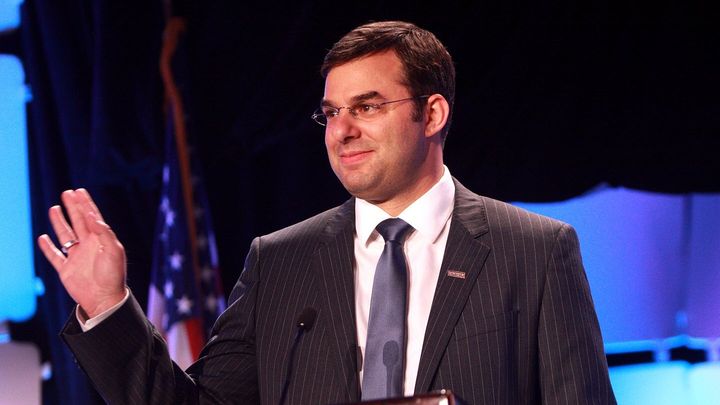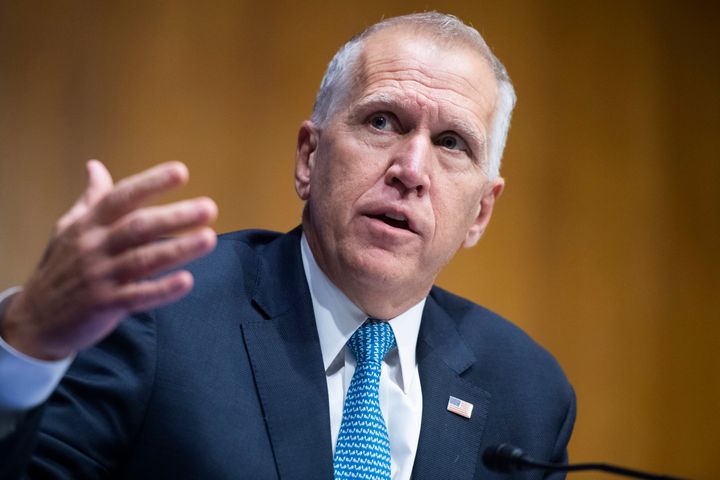This article has been updated to incorporate comments from Amash’s chief of staff.
When Congress passed the Coronavirus Aid, Relief and Economic Security (CARES) Act in March, only a handful of representatives spoke out against it. The bill is unprecedented in its spending and gives extraordinary power to government officials to intervene in the markets, but it was seen as a necessary response to the pandemic that would grind the economy to a halt.
One of the strongest voices against the bill was Rep. Justin Amash (I-Mich.), the libertarian representative who left the GOP last year citing his disillusionment with partisan politics. Amash called the CARES Act a “raw deal” that does “too little for those who need the most help, while providing hundreds of billions in corporate welfare,” and he threatened to object to the House passing the bill by unanimous consent, before ultimately backing off. On March 15, as the Senate was preparing to take up the first iteration of the bill, Amash staked out his position with a “no bailouts” tweet.
In particular, Amash has expressed concerns about the Paycheck Protection Program (PPP), a $669 billion program created by the CARES Act for the Small Business Administration to bail out small and medium-sized businesses by providing forgivable loans. He said on Twitter that the program favored connected companies, which may not be the ones that most need assistance.
Nonetheless, a company owned by Amash took PPP funds, Sludge found by reviewing SBA data. Grand Rapid-based Tekton Inc. received between $1 million and $2 million in forgivable PPP loans from Independent Bank, which was meant to help the company retain 86 jobs, according to SBA data. Amash co-owns the company with multiple family members and says in his financial disclosures that he is a “owner of minority interest.” Tekton, formerly known as Michigan Industrial Tools, sells budget hand tools and air hoses, most of which it imports from manufacturers in Taiwan and China.
Amash has between $1.1 million and $5.25 million invested in Tekton, including a loan made through another company where he is a member, Standard Bear LLC, according to his most recent annual financial disclosure. Amash disclosed between $50,000 and $101,000 in income from his Tekton stake in 2018 and he has disclosed as much as $4.1 million in total income from the company since 2013, in some years receiving up to $1 million.
In an email sent after this article was published, Amash’s chief of staff, Poppy Nelson, said that Amash’s opposition to the CARES Act was mainly because of its fund for bailing out large businesses and that his tweets were referring to that part of the bill. “PPP certainly has issues … but he doesn’t refer to broad, widely available programs like PPP as corporate welfare,” Nelson said. “There were better ways to accomplish PPP’s goals, but at least PPP was intended to be available to any business that meets the loose statutory criteria.”
PPP loans are designed to bail out businesses that face interruptions during the pandemic. The money companies borrow under the program will be forgiven by the federal government as long as they use at least 60% of it for payroll and don’t lay off too many employees or reduce wages by more than 25%.
Amash was elected in 2009 as part of the Tea Party wave that was premised on opposition to the federal government’s bailout programs and concerns over budget deficits and the national debt. Throughout his career in politics, Amash has opposed government programs that prop up some companies while leaving others at a disadvantage, including the Export-Import Bank, which he called “a perfect example of Washington cronyism,” and the Troubled Assets Relief Program (TARP).
In May, Amash voted against the TRUTH Act, which sought to increase transparency around the PPP and the companies that received assistance. The bill, which failed to achieve the supermajority House Democrats needed to pass it under an accelerated procedure for consideration they chose to use, would have required the SBA to release many of the same details that it ended up releasing earlier this week without a congressional mandate after being pressured to do so by media outlets and members of Congress.
Amash was one of five House representatives who did not vote in favor of an April bill to replenish the PPP with an additional $210 billion. Amash voted “present” on the measure.
Amash is far from the only member of Congress associated with companies that received PPP money. Rep. Mike Kelly’s (R-Pa.) multiple car dealerships received up to $1 million in PPP funds, Rep. Brett Guthrie’s (R-Ky.) aluminum auto parts manufacturing business got up to $5 million, and Rep. Vicky Hartzler’s (D-Mo.) farm business received nearly $480,000, among many other examples.
House members are allowed to hold positions at private businesses as long as they do not get an amount worth more than 15% of the congressional salary in earned income. And unlike members of the Senate, House members are allowed to serve on the boards of private companies. Sludge recently reported on representatives associated with private companies who have worked to pass legislation that advances those companies’ interests by reducing regulations, lowering taxes, or providing other targeted benefits.
Sludge asked Amash’s office for comment on how the representative squares Tekton’s PPP funding with his opposition to the PPP program, but did not receive a response.
Read more from Sludge:
EXPOSED: Reps Pass Bills That Benefit Their Own Private Companies
Mnuchin’s Fortune Tied to Companies He Can Bail Out
As Markets Crashed, DeVos Sold Shares in Secretive Cayman Island Fund
The Members of Congress Who Profit From War
Facing Climate Crisis, Senators Have Millions Invested in Fossil Fuel Companies



